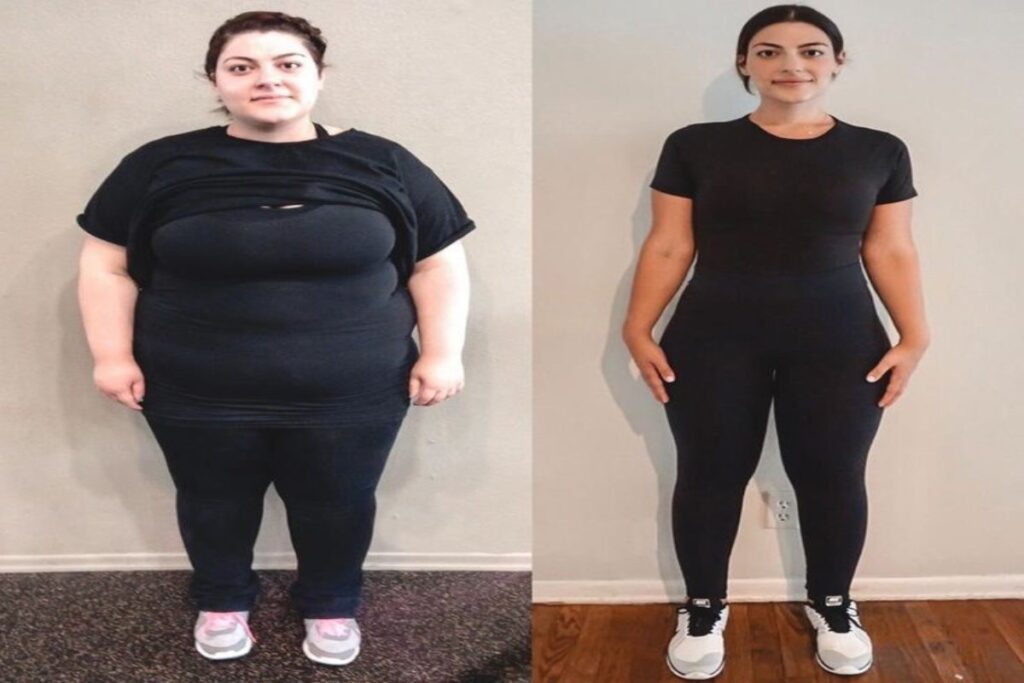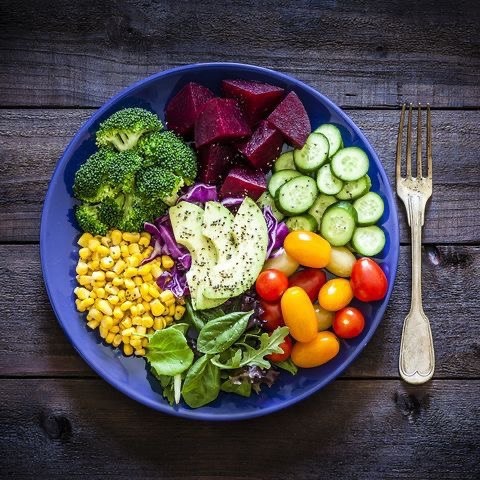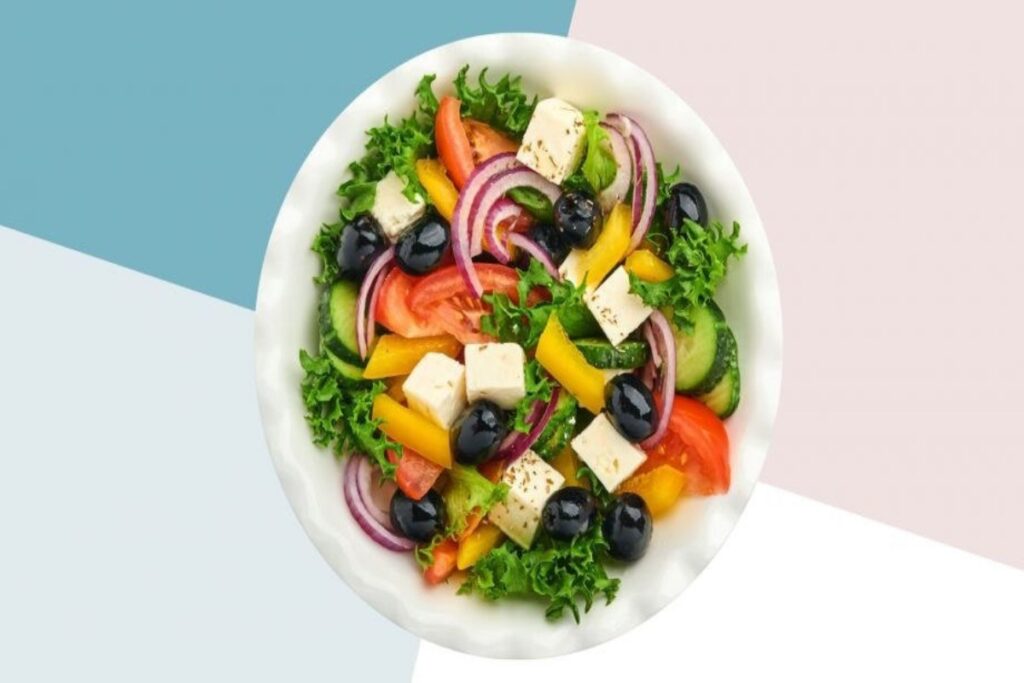
When it comes to dieting, the general idea is that you need to be in a calorie-deficit mode to shed those pounds. If you consume more calories than you burn, you’ll gain weight. However, you’ll start losing weight if you eat fewer calories than your body needs.
The kind of food you eat and how often you eat can affect weight loss. Different diets, such as keto, low-fat, or vegan, have their approaches and can affect your body in various ways.
As for meal timing, some people succeed with time-restricted eating, where they have a specific window for eating, while others prefer to have six small meals throughout the day. So yeah, it’s not just about the calories but also about the quality of the food and your eating patterns.
Understanding How What You Eat Can Affect Your Weight
Many studies have shown that the whole “calories in/calories out” thing is mostly true. As Christopher Gardner, a professor from Stanford University, mentioned, it’s mainly about what you eat rather than just exercise.
Let’s be real: Working out can make you feel hungrier, and sometimes, you end up eating more calories. So, it’s all about finding that balance and being mindful of what goes into your body.
“It is not the only thing but the main thing. And it’s mostly diet, not exercise because exercising makes you hungrier and you eat more calories,” Gardner told CNN Chief Medical Correspondent Dr. Sanjay Gupta.
ALSO READ: Here’s How to Tighten Your Loose Skin After Weight Loss
What Are the Secrets to Successful Weight Loss
Gardner breaks down the secrets to weight loss into two important aspects. First, it’s all about stopping your meal at the right time so you don’t overeat. That way, you’re not piling on extra calories that you don’t need.

Secondly, you have to give yourself enough time between meals. This helps ensure you’re not compensating for that calorie deficit by munching on extra snacks or having a big meal shortly after.
“So, the key to this calorie deficit is stopping your meal soon enough not to overeat and having a long enough space until the next meal so you’re not making up for that calorie deficit in the next few hours,” he said.
Gardner’s Secrets
POLL—Is Climate Change a Major Threat That Requires Immediate Policy Action?
Cut Back on Low-Quality Carbs and Added Sugars
Gardner suggests weaning yourself off those “crappy carbs.” He says the best way to make a big impact on your health is by cutting back or even cutting out added sugars and refined grains.

Gardner mentioned that the average American gets over 40% of their calories from these low-quality carbs and sugars. So, by making smarter carb choices, you can get a lot of bang for your buck in improving your diet.
“For most people, decreasing or eliminating as much added sugar and refined grains will be the biggest bang for your buck,” he wrote via email. However, he says you can’t cut out all those low-quality carb calories without replacing some. He suggests shifting your focus to foods that are rich in fiber.
Think beans, legumes, veggies, whole intact grains, and fruits. These fiber-packed goodies will keep you fuller for longer and help with digestion. Also, add sources of healthy fats like avocados, nuts, seeds, and fatty fish. They’re not only delicious but also provide essential nutrients for your body.
Know When To Stop Before You Are Stuffed
Gardner suggests trying out this principle called Hara Hachi Bu. It’s all about eating until you’re about 80% full and then stopping. This practice helps you control your calorie intake by giving your body and brain time to realize you’ve had enough to eat.
It takes a little while for your brain to get the message from your belly that you’re satisfied. So, by practicing Hara Hachi Bu, you can tune in to your body’s signals and avoid overeating. It’s a simple but effective way to manage your portions and keep those calories in check.
ALSO READ: These Tips Will Help You Achieve a Low-Calorie Diet
Change Your Mindset
Gardner suggests that whatever food choices you make, it’s important to think long-term. Whether you choose a low-fat, low-carb, high-protein diet or follow a specific diet like Mediterranean, vegan, keto, or Paleo, it should be a sustainable approach.
He emphasizes that it’s not just a temporary “diet” you go on and off, but a way of eating that you can stick to forever. And the key to making it work is feeling satisfied, not deprived and hungry all the time. So, find a way of eating that keeps you full and happy.
Show Yourself Some Compassion
Changing eating habits to lose weight can be challenging. But Gardner advises that you should be kind to yourself and patient throughout this journey. Most people face challenges along the way, and if you start beating yourself up over setbacks, it can make it even harder to keep going.
So, remember to give yourself some love and understanding. Take it one step at a time, and know you’re doing your best. “Be kind to yourself and patient,” Gardner said. “Most people struggle with this. If you beat yourself up psychologically for setbacks, it can be even harder the next time you make an effort.”
Find Joy in What You Eat
Gardner says it’s all about finding joy and pleasure in what you eat. He believes allowing yourself to enjoy your food is critical to long-term success. So, remember to savor those delicious meals and snacks. It’s not just about the nutrition but also about the happiness they bring you.
You Might Also Like:
5 Tips On How to Maximize Your Chances of Losing Weight and Keeping It Off
Arizona Supreme Court Enforces Near-Total Ban, Revives 160-Year-Old Law
Biden Reveals He’s Considering Australia’s Request to Drop Julian Assange Prosecution
Poll Shows Most Voters See Trump’s Hush Money Case as Serious
Chicago Street Cops Fire 96 Shots in Fatal Traffic Stop, Leaving One Dead
